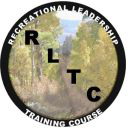|
|
|||||||||
 |
Empowering Leadership™, the new article series for leadership development, by Del Albright -- helping to lead volunteers to victory! |
|
|
|
|
I've found that a key to avoiding burnout and staying effective is to narrow your focus; concentrate your efforts. I like to think of our land use battles as a quail hunt. You ever hunted quail? Well, a typical hunt consists of hours of walking, wearing yourself out, then all of a sudden blazing away at a flurry of birds, usually missing most of them. The only one who gets any enjoyment out of this is your dog - who can't stop dog-laughing at your new-found state of frustration. The land use battles have reached such a flurry that many of us don't know where to start. So we take the shotgun approach. We try to get in all the games. Of course, we want to help out all our partners in other states; other regions; other clubs. So we assist with letters, phone calls, emails, etc. Pretty soon we have an extensive little filing system that may cover many subjects and many letters and many meetings. Then all of a sudden, we realize we're up to our ears! And hey, what about that lawn that needs mowing? And that car (4wheeler?) That needs detailing; the significant other that is tired of you being at the computer half the night; and the trails that need riding? Next thing you know, burnout sets in. There are just too many battles to fight and soon you begin to drop off in effectiveness. A friend of mine told me once that in his mind, this tactic of having too many battlefronts is JUST WHAT OUR OPPONENTS WANT. Just like in military maneuvers; if you spread the battle lines thin, pretty soon you'll find a way to penetrate and overwhelm the enemy. Well, STOP! If you're a land use activist who's been doing MORE than your share, it's time to concentrate your efforts, increase your effectiveness and avoid burnout. Here's some ways to do that. First Step: Re-affirm your commitment to fighting the land use battles. We all need to keep fighting the good fight. You can't let burnout take you out of the battle. Every letter we write; meeting we attend; run we run; new member we recruit; we make a difference. People we keep in the fight, no matter what their role, we make a difference in the outcome. So STAY IN THE FIGHT. Tell yourself you're going to do your part; just maybe a different part from here on. That's OK. Second Step: Decide what you're really good at. Are you a letter-writer; a meeting person; an advisor to others; a volunteer leader who organizes others; a writer in general; or just someone who wants to give money and stay in the background?? Find your niche. This may take some soul searching. Not all of us like to write letters, but we want to help. Not all of us can lead a run or meet face to face with some bigwig bureaucrat and feel comfortable doing it. Not all of us can take the time to attend all these seemingly endless meetings; but we still are interested in many of the meeting topics. The answer is to narrow your efforts and focus on those things you can be good at (your niche). Third Step: Drop those things you're not good at. Yes, it's like the old management system called "Monkey Management" from the 1980's. In that system, everything on your chore list is a "monkey." Your objective is to either feed the monkey (keep it happy); get rid of it (if it's not yours); or shoot it! if it really doesn't need to get done at all. So if your list of things to do, letters to write, meetings to attend, etc. etc. is way longer than you can handle, (in other words some of those monkeys just aren't yours or you're not keeping them happy), GET RID OF THEM!!! Fourth Step: Help others pick up what you need to drop. The sensible thing to do is to help someone else take over those monkeys for you. Find another activist to jump in where you left off (or never really got started). Don't just leave your partners hanging. If folks are depending on you, find a way to transition out of something you're not good at by helping someone else pick up where you left off. It may take some "cards on the table" talks, but that's better than letting something fall off the table. Fifth Step: Focus your efforts on your niche. Now that you know what monkeys you want to keep, and have gotten rid of the rest, begin to focus. Concentrate on getting really good at those things you're now doing. Make every effort count. Take classes if appropriate to improve your chosen niche. Get the pay backs. Make a difference. We all need to be fighting the land use/public land access battles; but we all don't need to fight all the battles. We must find ways to avoid burnout in our fellow club members and keep everyone doing their part. Of course, this assumes we're all already out their joining organized recreation and recruiting new members every chance we get. That's always a given. If you follow these steps, I think you'll find we can stay in the fight and make our efforts more effective. Feel free to write me if you have additional questions or need any help.
BE SURE TO READ MY LATEST ARTICLE ON FINDING YOUR THRESHOLD OF VOLUNTEERISM -- AND AVOIDING BURNOUT. |
 |
Empowering Leadership™, the new article series for leadership development, by Del Albright -- helping to lead volunteers to victory! |